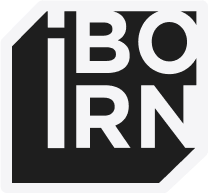Back in 1995, checking into a hotel meant long lines, stacks of paperwork, and front desk staff juggling outdated reservation systems. Fast forward to today, and it’s a different world. Guests tap their phones to check in, reservations are seamless, and staff focus on what really matters - the guest experience.
What powered this shift? Technology.
But this isn’t just about fancy software or sleek gadgets. It’s about understanding people. Thoughtful development and smart engineering help hotels move from managing bookings to creating meaningful connections. This is the story of how AI is reshaping hospitality.
Moving Beyond Guesswork with AI-Driven Insights
Imagine this: Elena manages a boutique hotel in Barcelona. The charm was there, but she faced the usual struggles: unpredictable bookings, last-minute cancellations, and pricing that felt more like educated guesses than strategy. Her team spent more time reacting to issues than creating memorable guest experiences.
AI changed that.
Elena didn’t adopt machine learning systems because it was trendy. She was tired of guessing. She needed to know who preferred sea views, who liked extra pillows, and when to adjust room rates. Data-driven platforms provided insights she couldn’t have predicted. They didn’t replace her team; they made them more efficient, freeing them to focus on the guests.
How Technology Works Behind the Scenes
-
Data Processing: Every booking, every review, every guest preference is analyzed. Advanced systems identify patterns and connections that aren’t obvious to the human eye. Mr. Johnson from London? He likes strong coffee and a room far from the elevator. The system remembers, even if the staff doesn’t.
-
Predictive Analytics: AI algorithms forecast which rooms will be booked, when demand will peak, and which reservations might be canceled. This isn’t guesswork—it’s pattern recognition based on historical and real-time data.
-
Personalization: Guests receive messages tailored to their preferences. Room recommendations match their past choices. Offers feel personal because they are. The result? Increased guest loyalty and positive word-of-mouth.

Enhancing Guest Support with AI Chatbots
Another transformative AI application in hospitality is the use of AI-powered chatbots. These virtual assistants handle guest inquiries 24/7, providing instant responses to common questions about reservations, amenities, check-in procedures, and local recommendations. Unlike traditional customer service channels, chatbots can manage multiple queries simultaneously, ensuring no guest is left waiting.
But their capabilities go beyond basic responses. Advanced chatbots use natural language processing (NLP) to understand context, detect sentiment, and deliver personalized interactions. Whether it's suggesting dining options based on dietary preferences or assisting with last-minute booking changes, chatbots enhance the guest experience by offering quick, accurate, and tailored support—all while freeing hotel staff to focus on high-touch, in-person service.
Keeping the Human Touch in Hospitality
Does all this tech make hospitality feel less personal? Not at all.
AI doesn’t replace human connection; it amplifies it. By automating repetitive tasks, staff have more time for meaningful interactions. Elena’s team now focuses on welcoming guests, not juggling paperwork.
Freed from administrative burdens, her team remembers guests’ names, recommends local spots, and adds thoughtful touches—like a child’s favorite snack waiting in the room. AI drives efficiency; people create the magic.
Lessons Learned: Best Practices for AI Adoption in Hotels
Elena’s story isn’t unique. Hotels worldwide are adopting AI with mixed results.
Common mistakes? Rushing into new systems without integration plans. One hotel in Paris installed advanced AI software, but their booking system didn’t sync with their CRM. The result? Disconnected data, inefficient operations, and frustrated staff.
Lesson learned: The systems only work when integrated seamlessly. They should enhance workflows, not complicate them. And don’t forget the human element. These tools are powerful, but their real value comes when staff know how to interpret and act on the insights.
What’s Next for AI in Hospitality?
Imagine a hotel where your room temperature adjusts automatically, your minibar is stocked with your favorites, and your itinerary includes personalized local recommendations.
This isn’t the future. It’s happening now.
Hotels are using:
-
Sentiment analysis to measure guest satisfaction in real-time
-
Predictive maintenance software to prevent equipment failures before they disrupt service
-
AI-powered energy optimization to balance sustainability with comfort
No matter how advanced the systems are, hospitality remains about people. AI predicts preferences and optimizes operations, but human connection leaves a lasting impression.
Why This Matters for Hospitality Leaders
The demand for AI-driven solutions is accelerating because they deliver measurable results:
-
Increased revenue
-
Reduced operational costs
-
Enhanced guest satisfaction
-
Improved operational efficiency
At IBORN, we craft technologies that solve real business problems. We understand that behind every line of code is an opportunity to create experiences that guests remember and businesses thrive on.
Conclusion: The Future Is Already Here
The true power of AI in hospitality is about driving revenue growth. By leveraging data-driven pricing strategies, hotels can optimize room rates in real-time, capturing more demand during peak seasons and adjusting for fluctuations in occupancy.
Predictive analytics identify high-value customers, enabling targeted marketing campaigns that increase direct bookings and reduce reliance on third-party platforms. Automated systems reduce labor costs, while predictive maintenance minimizes downtime and unexpected expenses.
Ready to increase your revenue and streamline operations? Book a free consultancy call to discover how our custom AI solutions can help you achieve sustainable growth in the competitive hospitality landscape.







